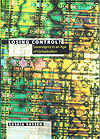|
|
|
|
by Saskia Sassen

The past decade has seen great changes in the way business is transacted across national borders. Because of unprecedented advances in telecommunication and computer networks, money is transferred in electronic space. U.S. firms such as Ford, IBM, and Exxon now employ well over fifty percent of their workers overseas, rankling both domestic workers who argue that jobs are being exported while unemployment soars at home and activists who contend that wealthy corporations are exploiting low-wage workers in Third World nations. And as immigration levels soar, the very concept of citizenship has moved to the top of political agendas around the world.
What determines the flow of labor and capital in this new global information economy? Who has the capacity to coordinate this new system, to create a measure of order? And what happens to territoriality and sovereignty, two fundamental principles of the modern state?
Losing Control? is a major addition to our understanding of these questions. Examining the rise of private transnational legal codes and supranational institutions such as the World Trade Organization and universal human rights convenants, Saskia Sassen argues that sovereignty remains an important feature of the international system, but that it is no longer confined to the nation-state. Sassen argues that a profound transformation is taking place, a partial denationalizing of national territory seen in such agreements as NAFTA and the European Union.
Two arenas stand out in the new spatial and economic order: the global capital market and the series of codes and institutions that have mushroomed into an international human rights regime. As Sassen shows, these two quasi-legal realms now have the power and legitimacy to demand accountability from national governments, with the ironic twist that both depend upon the state to enforce their goals.
From the economic policy shifts forced by the Mexico debt crisis to the recurring battles over immigration and refugees around the world, Losing Control? presents an incisive review of the affairs that are radically altering the landscape of governance in the era of globalization.
About the author.